Finding Bosnia: Beyond the Typical
It takes time and effort to see something truly special, but the reward is worth the journey.
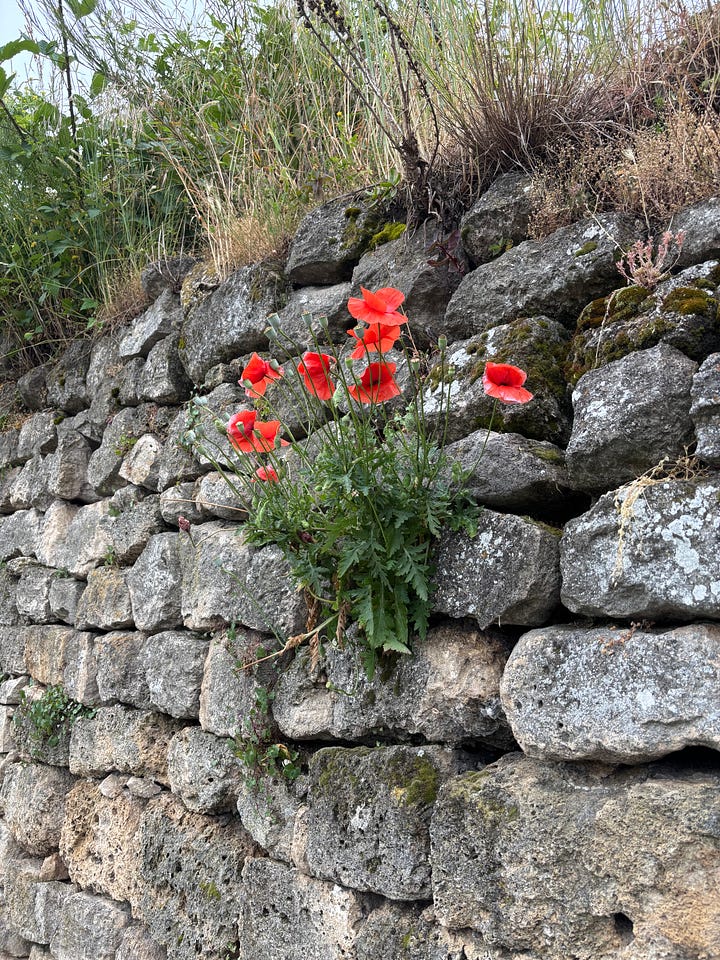
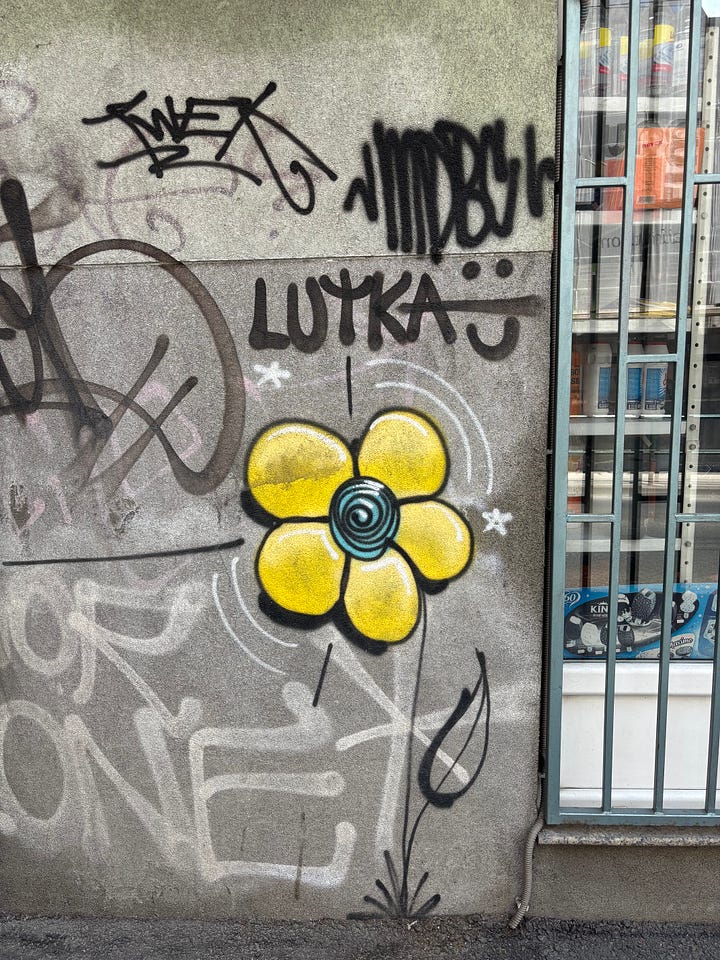
At this point, I’ve seen the big touristy stuff. Old Bridge in Mostar? Check. Bazaar in Sarajevo? Saw it on my first day. Such and such bridge? Yep. Watermills? Uh huh. A lot of that stuff can be seen from literally any angle online, and frankly, that’s not why I’m here.
In a country with a deep history, with layers of human settlements just itching for exploration, it’s surprisingly tough to interact with. Transportation here is frustrating. Slow. Untimely. I leave my body in the hands of Fate, hoping that the driver doesn’t cause a crash when he overtakes a slowpoke on a blind curve.
Luckily I’m here for a month, so I can spread out these frustrating days, and allow myself time to explore, write, and live slowly. I hate being in a rush. Don’t rush me. I don’t want to fill my stomach - I want to savor the flavors that come to me, and not spit out one thing to make room for another.
Something I wasn’t prepared for was the lack of interest in pre-Ottoman history here in Bosnia. From my experiences interacting with people, the locals on the Federation side (Federation of Bosnia and Herzegovina, one of two separate entities that make up the nation as a whole, referred to simply as “Federation” in this essay), primarily Muslim, have little to no interest in Roman and pre-Roman history. One reason may be that they don’t feel connected to it the same way Greeks or Italians feel connected to their ancient roots. Heavy Turkish influence here since the 90’s has helped create a renewed interest in Ottoman history and culture, and it shows everywhere you look. Those are the roots people draw on, and the Romans and Illyrians were just someone else.
My tour guide in Jajce could barely explain the fortress, except that the Ottomans took it over and improved upon its existing battlements. The Mithraic Temple a stone’s throw away was something he was vaguely familiar with, but had no idea what it was. He agreed to let us go see it, and was shocked that it was so rare and mysterious. It was foreign to him, despite sitting there for millennia, long before the Slavs and the Turks arrived. I gave a short lecture to the group at the temple about the Mithraic Mysteries (what I could remember off the top of my head), and the other guests were really interested and happy that we got to see it. That’s what people want - something unique and special to remember when they go home. No one else in the group even knew about this unique, popular cult that the Romans adopted from the east. It had rivaled early Christianity until Constantine the Great’s adoption of the Church as the state religion. This humble site was way more special and rare than some fortress. Every town with a decent population and a hill has one, and they all follow the same rules, but Mithraic anything is rare here.
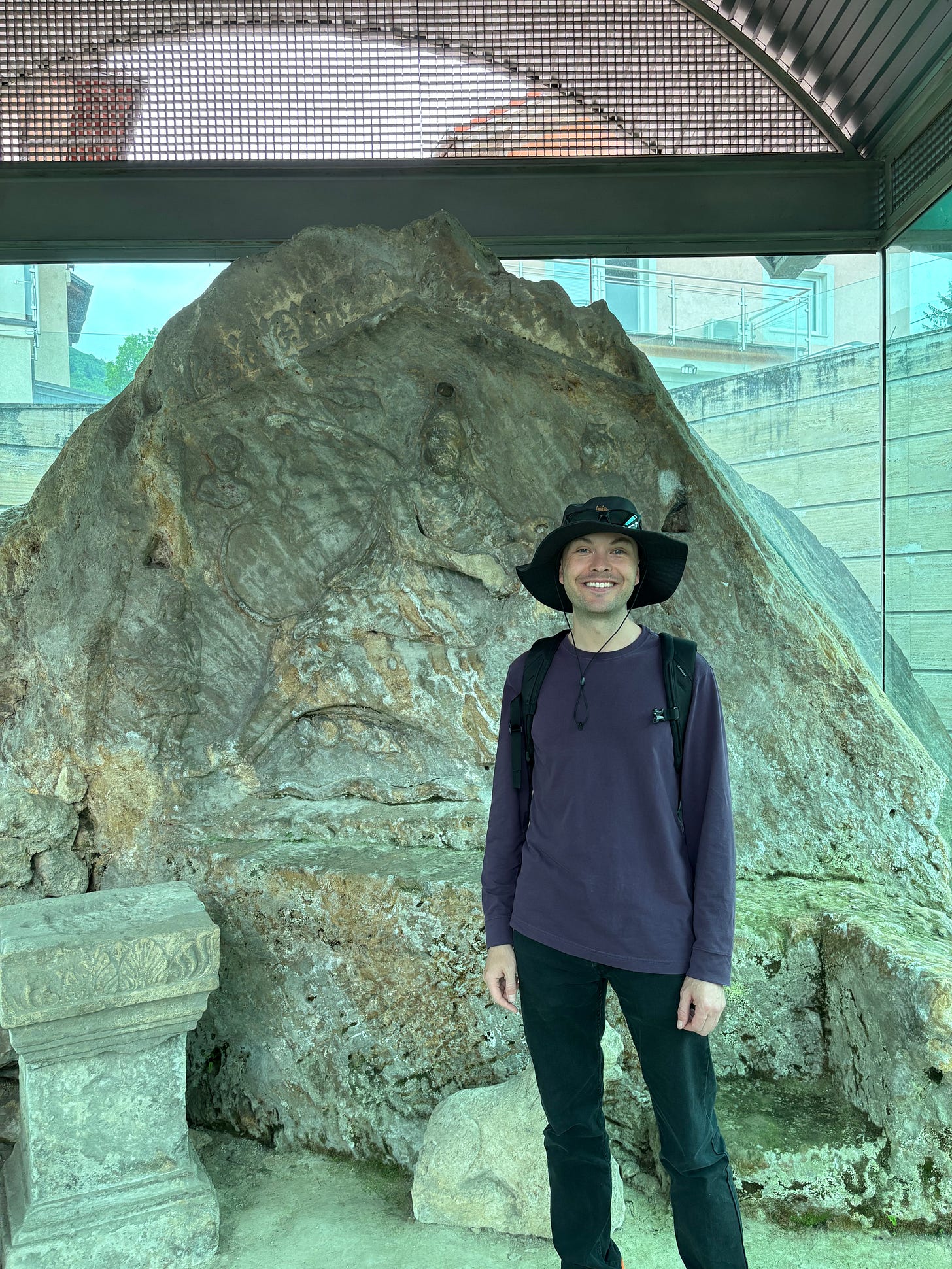
If you’re looking for balance anywhere in the Balkans, don’t hold your breath. Lopsided views are part of what makes this region so interesting, and for the traveler, it’s critical to maintain objectivity by remembering that everything people tell you is one-sided. Create the balance in your mind, and don’t argue. Continue to seek, and the gaps will fill in on their own as you explore.
Regarding my point on not arguing, sometimes it’s hard. Exaggerations and outright lies are common, and sometimes pertain to the stupidest things. You aren’t going to change someone’s mind by explaining it to them. Nod and smile, and don’t argue. I made the mistake of chiming in on a tour group when the guide was explaining how the Ottoman government treated non-Muslims. He said that as long as they paid the religion tax, they didn’t have to serve in the army. I added that they did have to contribute to the army via the infamous “blood tax.” He knew all about it, but didn’t want to mention it, and wasn’t happy that I not only knew about it, but even mentioned it out loud. Why be so testy? Boys haven’t been pulled from their mothers to serve the Sultan in living memory, but he was still determined to cast the Ottomans in a favorable light. Interesting. He was also mad that I liked the famous novel Death and the Dervish by Meša Selimović. He said he hated the book because it showed the Ottomans treating fellow Muslims unfairly, which to him, was impossible. That wasn’t the point of the story at all, and I realized there was no way I could explain to him that the story was more about a man’s descent into hypocrisy, and might have contained some thinly veiled critiques of the Yugoslav regime. It’s a famous novel for a reason, and sometimes good literature flies over people’s heads. I can’t change that, and it’s not my job to, either. Nod and smile, Felix.
Did I help anything by mentioning the blood tax? Nope, though he did appreciate my curiosity and dedication to learning about his country. It was interesting to see his demeanor improve as our chats lengthened on the trail to and from Lukomir, but I didn’t change the way he saw the world. It’s up to him to do that - not me or anyone else. This anecdote was just an example of how people the world over like to pick and choose the things they remember. To understand history correctly, we need to balance the narratives. It’s not easy, just ask the American South.
Attitude is key!
Not every wonderful thing is some grande jaw to the floor “woooowww” moment. Most of it isn’t. Many of the wonders of the world come from beauty in the mundane. In order to see and appreciate it, we have to be open to that beauty. Open your eyes and ears, and take it in. For example, here in the Federation, people greet each other. It reminds me of being in Greece. People will cross the street to shake hands with their uncle’s friend they recognize. That’s beautiful. People here are warm, will look you in the eye, and carry on a conversation. My skill in BCMS is nonexistent, so aside from English, I’m so thankful that I speak German. It unlocks wonderful opportunities. I’ve been using my German more in Bosnia than I have in years past. Older people are a joy to chat with, and it seems like German is to them as English is to the youngsters. I discover these opportunities on my walks, and it’s a major reason I strike out in a different direction each day in the city. Who knows who I’ll run into? I recently had a nice conversation with Farroukh, who runs a small bodega in a residential area on the north side of the city. He could see I was a foreigner (floppy hat), and when I grabbed a cold bottle of water, he smiled and said, “sommer.” “Ja,” I answered, and that launched us into a nice conversation. He lived and worked in Munich for six years - thirty years ago, and his German was still very good.
How do you get to places?
I utilize a combination of tour groups and solo travel on intercity buses. Tour groups expose me to more things in a day, allowing me to decide what to see again in depth on my own. Intercity travel is tough, so I like to know what I’m spending my energy on. For me, this is a smart thing to do, because smaller towns can be explored more or less in a half day. It’s a very full day, in fact, considering the round trip on the bus is the other half (or more) of the day. Some sites are remote, such as the Pliva Water Mills, and I was satisfied with the thirty minutes the guide gave us to explore. On the other hand, now that I know it’s worth going back to Mostar and Jajce, I’ll make plans to go on my own. Mostar had so much more to see. Our group drove past all kinds of curiosities, but we had to make the obligatory stop so each of us could have our turn taking a picture of the bridge from the same angle. Mostar has so much more going on, and I’ll enjoy my return trip, possibly next week. Jajce has more to see as well. Nick Nasev clued me in to an interesting site dedicated to the anti-fascist movement in WWII, and I know there is even more to find.
Some places are only accessible by car. I’ve tried BlaBlaCar several times, and gotten zero hits. Some things I’ll just miss this time. I’m not willing to rent a car. A gringo in a rental car equals police magnet, and I just don’t feel like buying every cop that pulls me over a new pair of shoes for his kiddos. Call me selfish.
Be-bopping is something I do daily here in Sarajevo. I have to.
Be-bopping, or bumming, is just random walking. I love it. Sarajevo is a tough city to bebop in the summer, its orientation and overall design mean there is little shade. I go out in long sleeves and pants, with my floppy hat, armed with some water to explore the city. I test the limits of my sunscreen and my body’s response to the heat. It’s worth it. The back streets are full of character. Cats abound, which I love, and I always find more interesting street art. Wandering walks are good for the mind, as well as the body. I see snippets of daily life that add to my mental repository, my image of the city. I like to discover cool cafes to enjoy my afternoon coffee. Like any other Balkan destination, they are all unique, and are oftentimes themed. There is a Viking cafe a few blocks from my accommodation. Wooden shields and weapons grace the walls, but they were playing an excellent 80’s playlist, full of deep cuts. The Mr. Bean cafe was interesting, too. It’s a privilege to try a new cafe every day, but some, such as Von Hapsburg, are worth visiting twice.
For someone visiting for the first time, have your obligatory Bosnian coffee in the touristy part, but go up the hill and across the street from the big fountain. Those cafes are better, and are calmer than on the main part of the old market. Once you’ve done that, just go to normal cafes and have espresso-based drinks. You’ll probably be the only gringo, and that’s a good thing.
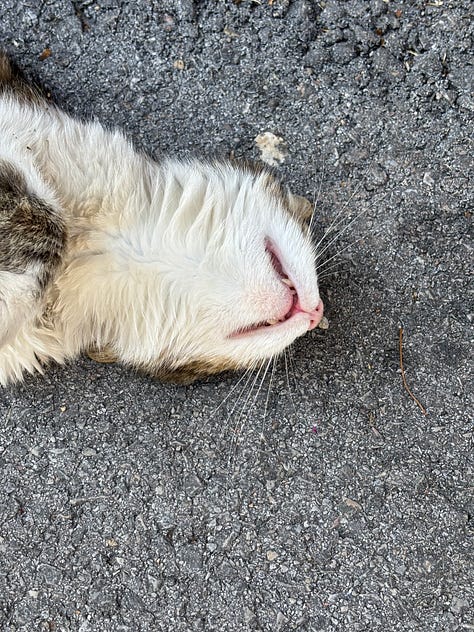
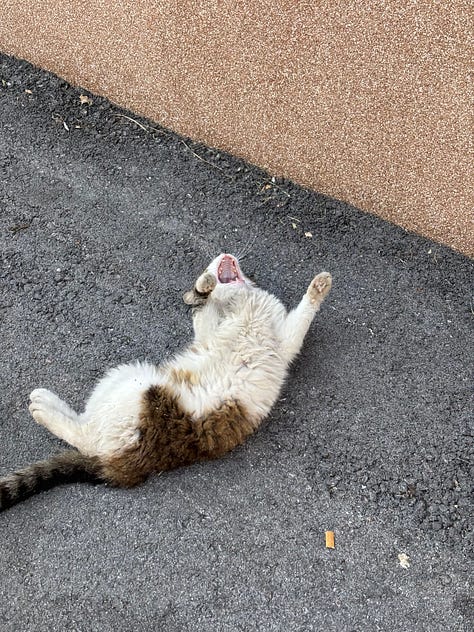
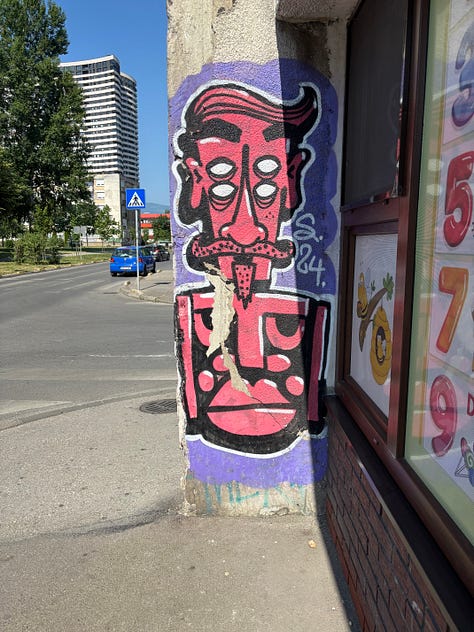
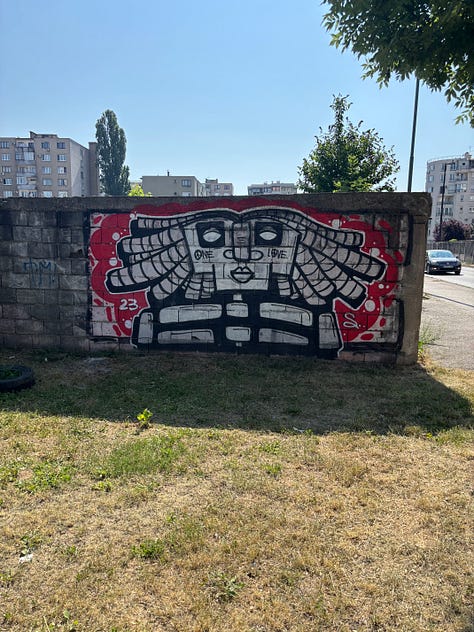
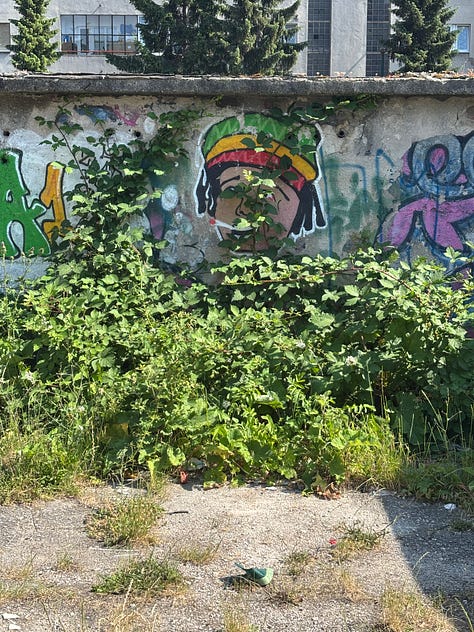
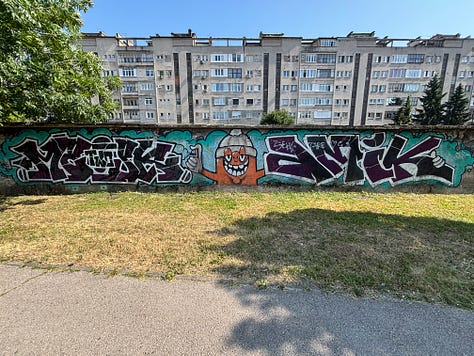
The internet is only a starting point, and isn’t always correct.
The internet says all kinds of things. Such and such thing is open at this time, or that time. Websites aren’t always updated. They many not be taken down when a place goes under. I’ve gone twice now to take the cable car to the abandoned bobsled track, and it was closed when it wasn’t supposed to be. No signs on the doors. No employees. The second time I went, there was a crowd of tourists waiting, confused as to why it was closed. Again, no information posted online, or pasted on the door. Again, no employees on site. I just walked away. I’ll try one last time.
I can’t tell you how many times I’ve gone to a restaurant I found on Apple Maps that was gone. Gone, as in the space had been cleared out, and was halfway through being remodeled into something else. Or totally gone. I’ve gone to addresses of alleged restaurants, and found an empty lot where it used to be. Puzzlingly, recent reviews said how wonderful it was. Strangely enough, this is common. I’ve had this happen not just in Bosnia, but in Serbia, even in Hungary. It happens. Just find something else, and remember the internet is no more than a spring board.
Restaurant reviews can be largely ignored. Most negative reviews here are because Westerners have unrealistic expectations as far as customer service. If you want your low paid waitress to fawn on you and listen to you tell the long story about blah blah blah, you’ll need to go back to Texas where Doris will listen with her fake smile you so desperately need so she can receive a tip to pay for her insulin. In the Balkans, they are just doing their job, which means they take your order and bring your food. That’s it. They might make your drinks, too. They are tired, paid peanuts, and fake smiles are an American thing besides. How to find restaurants? Look for them as you explore. Are people eating there? On Maps, does it have good pictures? I am using Maps less and less to find places to eat, it’s basically useless.
A final note about sit-down restaurants: It’s common for people to hold down a table for a few hours here, so if you scarf your food and want to pay inside an hour, the staff isn’t ready for you. They might think something is wrong if you want to leave so quickly. The tempo is different here. Embrace it. Travelers need to conform to the locals, not the other way around. Plan ahead and be flexible. If you have limited time, get some street food. It’s good. There is a vegan street food place around the block. I believe it’s the only vegan joint in the city, and it’s across the street from a non-vegan street food joint. Choose your adventure, but either way, you won’t be disappointed unless you allow yourself to be.
Travel is a mechanism. Use it wisely, and you’ll be rewarded.
Be patient. Be kind. See the places you visit. Read about where you’re going just a little bit before you leave home, that way what you see is even more enriching. Things won’t always go your way, but that might be the universe pointing you towards an opportunity. An older couple from the UK didn’t get out of the van to see the Mithraic temple because it wasn’t on the itinerary, and they weren’t curious. It’s a shame, because everything else we saw, they could have seen online without having to deal with being crammed in a minivan, which they weren’t happy about either. They were on a tight schedule, so they’ll never have the opportunity to see it again, unless they come back, which I doubt. I’ll never understand how people can travel somewhere and not be curious. What’s the point? In this case we were there anyways, and they missed it because they let themselves get in the way of their own trip.
Stay curious, my friends. There is richness everywhere. Allow yourself to see it.
-FT
PS: I had an artist that does record art put together this new banner. I really like it. He did some others too, and I’ll rotate them in.






I've been rereading your piece here Felix. I love what you have to say and your observations.
I'm still astounded by this Mithraic history all around the Balkans. While there's passing mention of the Romans and, with the exception of the Albanians, the Illrlyrians, nothing is ever mentioned of Mithraism, though as you mentioned, there are contemporary political and religious reasons for this. I'm intrigued now.
And yes, the nod, smile and don't argue approach is firm advice. No-one has the time or energy to deal with impromptu, completely biased history lectures, especially when the last bus to the capital is about to leave (experience here 😔).
Keep on writing Felix! You are the best person for this as you see the things that the locals don't but should.
I assume you’ve been to Mi Smo Titovi cafe?